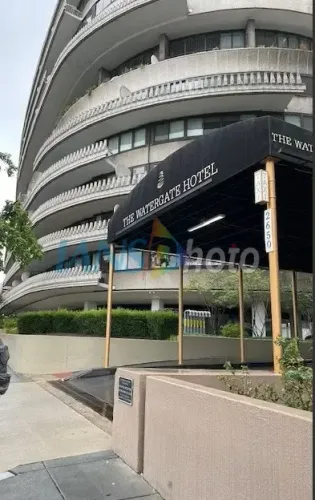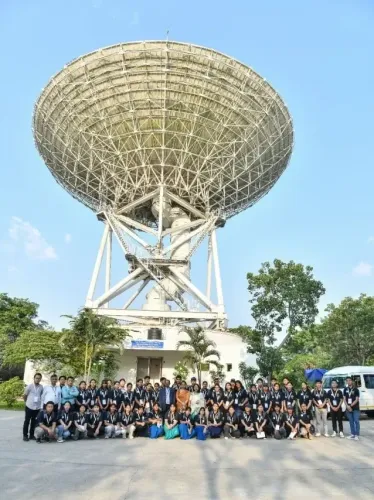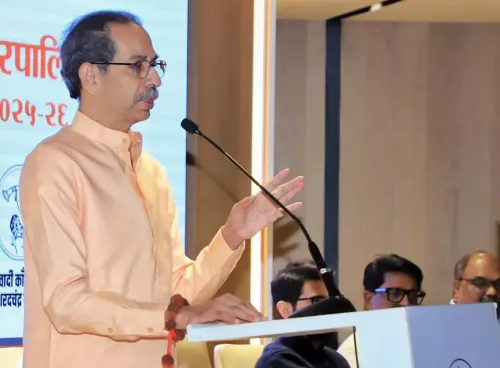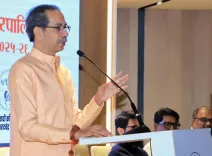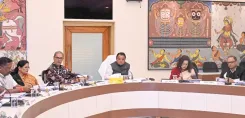How is Ayushman Bharat Expanding? Record Health Card Distribution Achieved by Bihar!
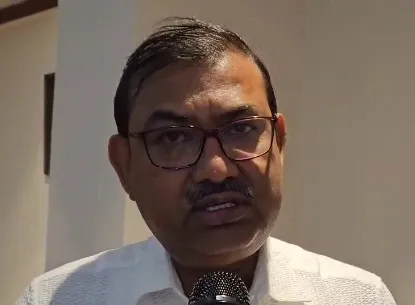
Synopsis
Key Takeaways
- Ayushman Bharat Yojana aims to enhance healthcare access nationwide.
- Bihar plans to increase hospital partnerships to 1500.
- Over four crore Ayushman cards expected to be distributed.
- Financial assistance of Rs 2,020 crore recorded so far.
- Awareness campaigns aimed at ensuring all family members are covered.
New Delhi, June 7 (NationPress) The Pradhan Mantri Jan Arogya Yojana, also referred to as the Ayushman Bharat Yojana, has become a pivotal health program designed to deliver extensive benefits to the populace. Initially, beneficiaries were determined via the National Food Security Act.
By 2025, the government plans to add 500 more private hospitals to its network, increasing the total number of facilities in the state to 1500.
On a national scale, treatment services are now accessible at about 21,000 to 22,000 hospitals throughout India. However, gaps were identified, leaving approximately 58 families without coverage. To address this, the Bihar state government initiated the Chief Minister Jan Arogya Yojana, leveraging its own funds to broaden coverage. This state-operated scheme works in tandem with the Prime Minister Jan Kalyan Yojana through a unified portal, enabling all ration card holders to access benefits.
“A significant campaign for card distribution was launched in 2024, representing a major enhancement in healthcare access,” stated Shashank Shekhar, CEO of the Bihar Health Security Committee, in an exclusive discussion with IANS. He emphasized the change brought about by these initiatives, noting that while the state once had around 80 lakh Ayushman cards, the figures are projected to reach four crore. He described this surge as a remarkable success, attributing it to increased awareness and improved processes for greater accessibility.
The benefits of these cards have been noticeable across diverse sectors, from hospital admissions to medical treatments. Financially, the initiative has made significant progress, with an expenditure of Rs 2,020 crore recorded thus far, including Rs 1,010 crore spent in 2024 alone. The grassroots response to the program has been overwhelmingly positive, according to Sinha.
He pointed out that the initiative has greatly shifted public attitudes towards healthcare costs, particularly in rural communities. Previously, the onset of illness would induce panic among villagers, given the financial burden associated with treatment. However, with the world’s largest health insurance scheme now offering a safety net, worries about medical expenses have considerably lessened.
To facilitate widespread distribution of Ayushman Cards, targeted membership drives were conducted throughout Bihar. The government actively involved PDS dealers, organizing camps at PDS outlets before expanding into a comprehensive multi-window system. Card issuance was extended to panchayat offices, Asha workers, Jeevika Didi groups, and ration card holders.
Moreover, hospitals and Common Service Centres enabled digital registration via the Ayushman Bharat Digital Mission (ABDM), leading to a more efficient process, remarked Sinha. He highlighted a common misunderstanding among families regarding the necessity of Ayushman Cards. Many believe that younger members, such as children aged 11 or 12, do not require coverage. To address this misconception, awareness campaigns have been launched, encouraging families to obtain health cards for all members to ensure comprehensive protection.
The program also aims to broaden hospital participation. Bihar currently hosts about 585 private hospitals, equaling the number of public healthcare facilities. For 2025, the government intends to empanel 500 more private hospitals, raising the total number of participating institutions in the state to 1500.
On a national level, treatment is now provided at roughly 21,000 to 22,000 hospitals across India, further solidifying the Ayushman Bharat Yojana as an essential healthcare lifeline for millions, he noted.



